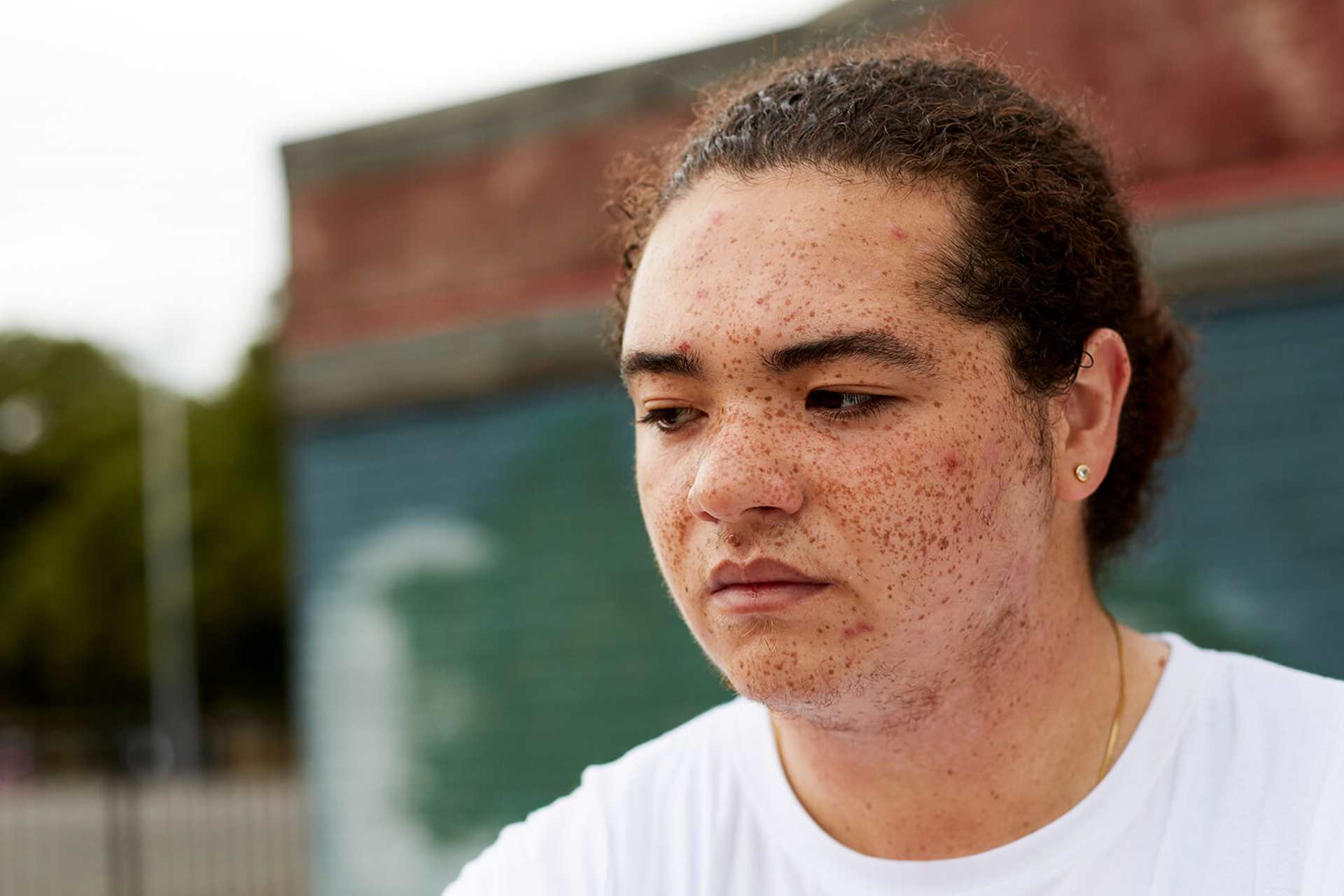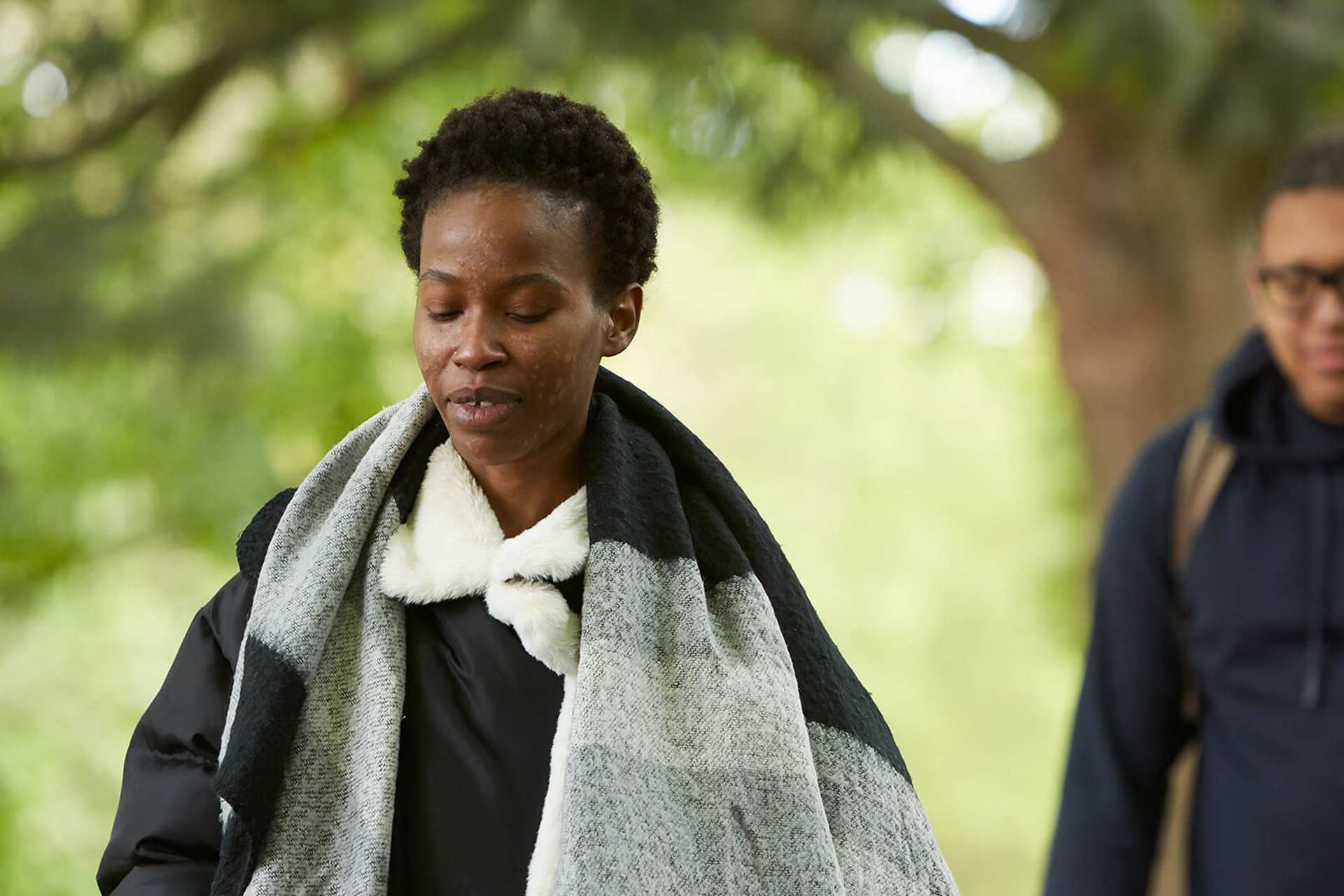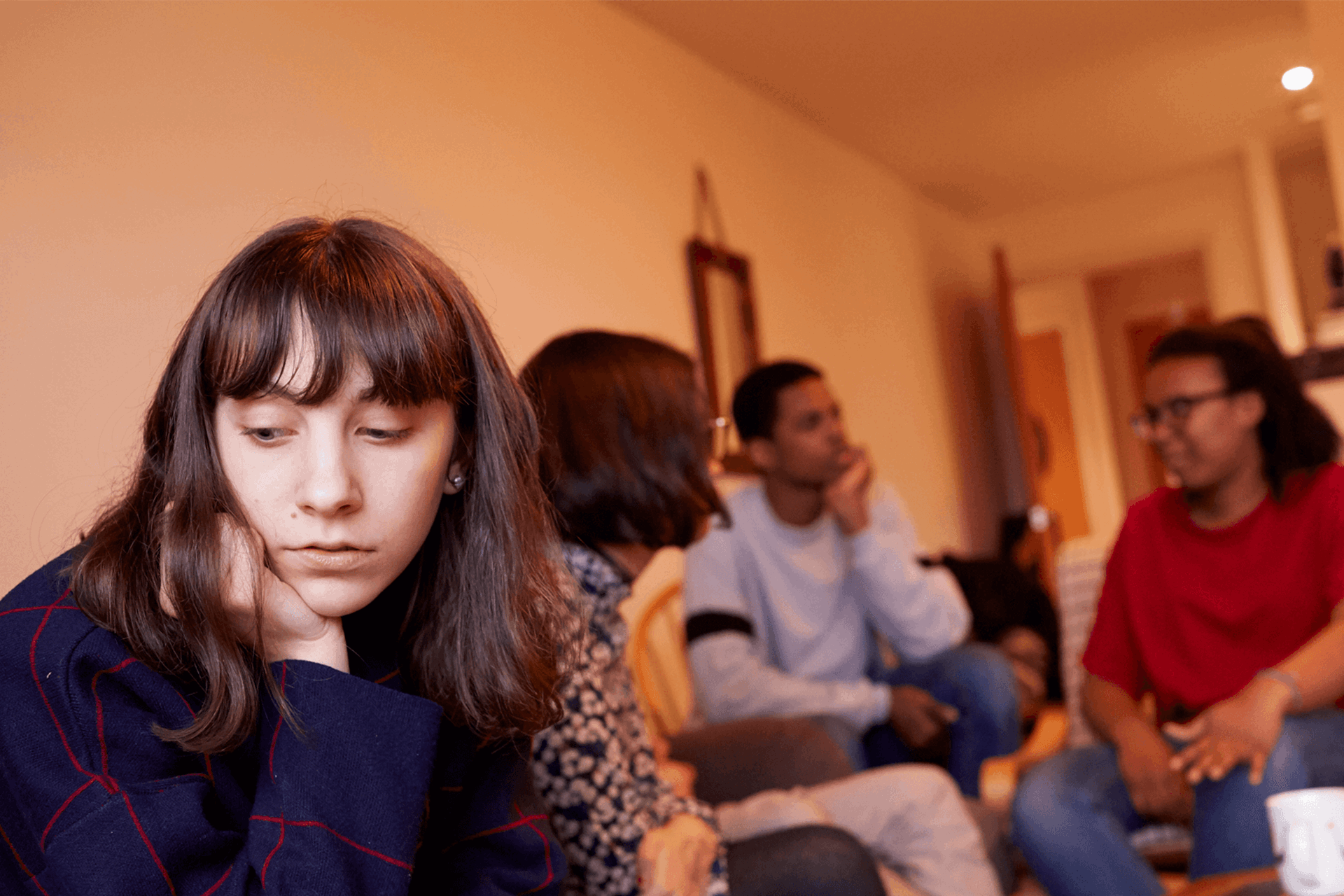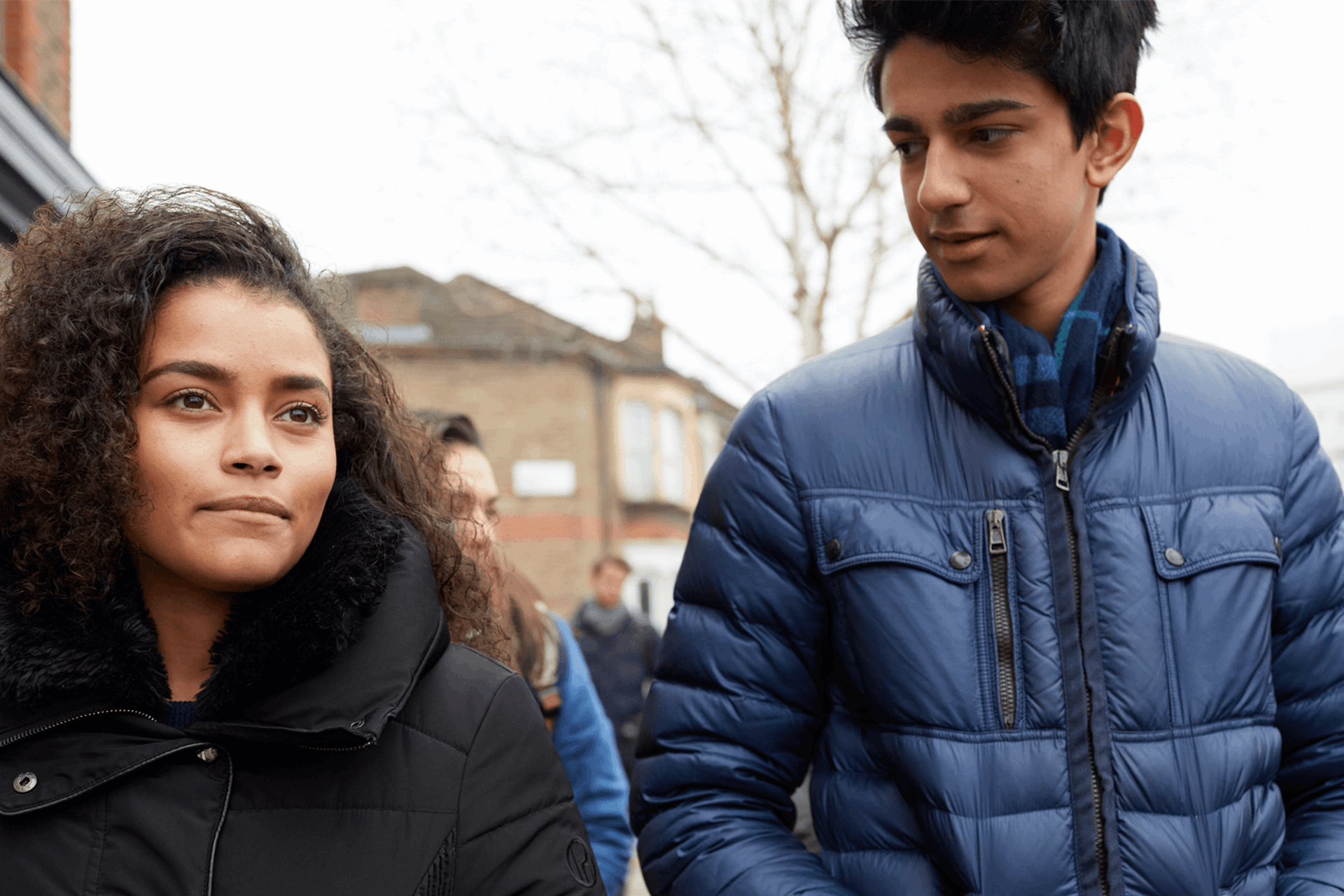Topics mentioned: trichotillomania (hair-pulling disorder), anxiety, counselling and therapy
About: Lauren describes what trichotillomania feels like, how she found support, and the strategies she uses to deal with impulses.
This blog contains references to hair-pulling. Please do not read on if you think the content may be triggering for you. If you are currently struggling with your mental health, please visit our find help page for information, advice and guidance on where to get support.
I pulled my eyelashes out when I was stressed, anxious or uncomfortable – it became a way to deal with emotions.
I first noticed symptoms of trichotillomania when I was about 15. At the time, I didn’t know what it was or what it meant when I was pulling my eyelashes out. I felt embarrassed and that I had to hide what I was doing, even though my family and friends could see the effects.
Trichotillomania can include pulling hair from the head, eyelashes, eyebrows and other body parts. I had never experienced anything like this before, so I was confused and ashamed, as no one else I knew did this. For anyone who has not experienced this, it can be easy to say, ‘why not just stop?’ However, with impulses, telling someone not to do something when they feel an overwhelming urge is like telling someone not to scratch when they have an itch.
The reality of the condition, in a world that prizes hair, means that trichotillomania sufferers feel even more isolated.
I pulled my eyelashes out when I was stressed, anxious or uncomfortable – it became a way to deal with emotions. Once I had pulled, I felt a weight had been lifted off my shoulders. However, swiftly after the feeling of relief from the built-up tension, I then felt shame about what I had done. This became a vicious cycle.
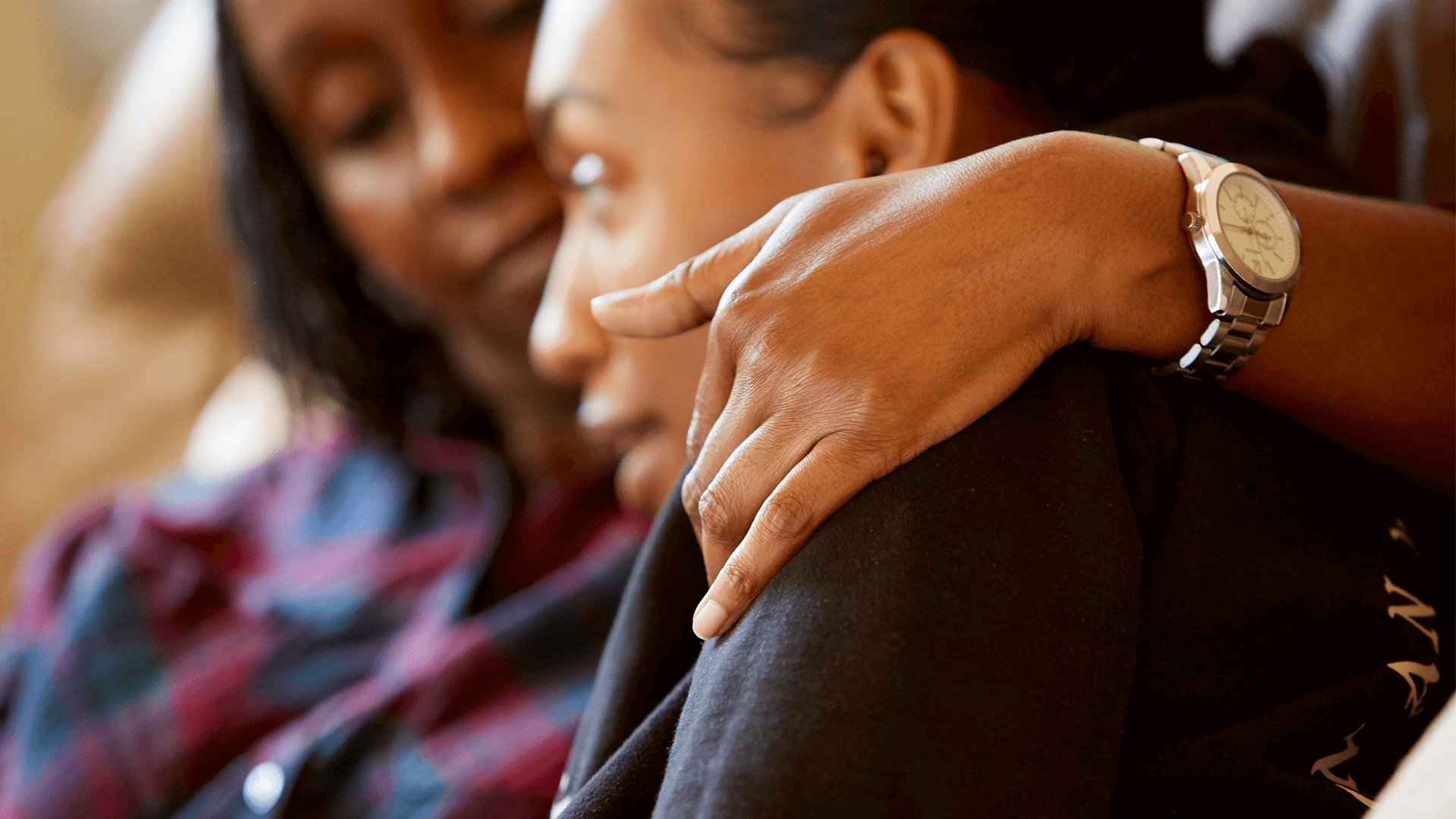
To this day, I still remember a significant turning point when a family member pointed out how many eyelashes I was missing and asked why. The reality of the condition, in a world that prizes hair, means that trichotillomania sufferers feel even more isolated. With the help of my parents, I was pointed in the right direction to receive the support I needed at the time.
This led to me receiving professional counselling, focusing on my impulses to pull, reasons behind it and how to cope. Because of this, I was able to focus on myself, discover my triggers and most importantly, understand that what I was doing was not ‘weird’ or ‘shameful’ – it was a form of self-soothing.
What I was doing was not ‘weird’ or ‘shameful’ – it was a form of self-soothing.
Since then, I have fortunately been able to find loads of healthy coping strategies and techniques to deal with impulses. For example:
Tips for coping with trichotillomania
-
Work out your triggers
Keep track of when you’re pulling hair, what you’re doing at that specific moment, and how you feel. This can help bring awareness to what emotions or activities are more likely to result in pulling.
-
Replace hair pulling with another action
Carry ‘fidget’ toys/resources so you can keep your hands occupied if you feel impulses to pull. For me, having specific jewellery such as bracelets and rings really helped me as they were not an extra thing to carry around, they were already on me.
-
Be patient with yourself
This will not go away overnight. However, it is so important to know that with the right support and encouragement, you can learn how to cope with impulses.
-
Notice, interrupt and choose what next
This allows you to notice when you feel an urge, interrupt the chain of feelings and choose to do something else instead, something that will relax you.
I think the most important thing to know about trichotillomania is that you are never alone. Being able to put a name to specific behaviours can often be the first step towards seeking and receiving support. Support that works for you and helps you understand your impulses.
Being able to put a name to specific behaviours can often be the first step towards seeking and receiving support.
More information and advice
We have tips and advice to help you find the support you need. Take a look at our guides.
Where to get help
However you're feeling, there are people who can help you if you are struggling. Here are some services that can support you.
-
Childline
If you’re under 19 you can confidentially call, chat online or email about any problem big or small.
Sign up for a free Childline locker (real name or email address not needed) to use their free 1-2-1 counsellor chat and email support service.
Can provide a BSL interpreter if you are deaf or hearing-impaired.
Hosts online message boards where you can share your experiences, have fun and get support from other young people in similar situations.
- Opening times:
- 24/7
-
Youth Access
Provides information about local counselling and advice services for young people aged 11-25.
Put in your location and what you need help with into their 'Find help' search, and see what services are available in your area.

